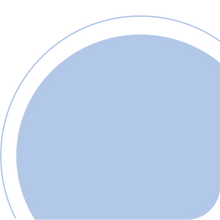The Connection Between Sleep Quality and Dry Eye


Request an Appointment
Poor sleep can significantly impact many aspects of our health – including the health of our eyes. Recent evidence suggests that insufficient or poor-quality sleep may contribute to dry eye symptoms. Our eye doctors understand that a good night’s sleep is essential for maintaining a stable tear film and overall ocular comfort.

Dr. Amanda Gredzik is an optometrist with a strong focus on therapeutic eye care, specializing in dry eye treatment, including the use of amniotic membranes and punctal plugs.
The Connection Between
Sleep and Dry Eye
When we don’t get enough quality sleep, our bodies produce stress hormones like cortisol and epinephrine at higher levels. These hormones can interfere with normal tear production, leading to changes in both the quantity and quality of our tears. In essence, without adequate sleep, the tear film that lubricates and protects the eye can become unstable, setting the stage for dry eye symptoms.
Numerous studies have revealed a strong association between sleep quality and dry eye. For example, research indicates that individuals with poor sleep habits are about 50% more likely to experience dry eye symptoms compared to those who have regular, restorative sleep. Moreover, patients already suffering from dry eye are 1.5 times more likely to be poor sleepers. This cyclical relationship shows that sleep and ocular surface health are more interconnected than many of us realize.




How Poor Sleep Affects Tear Production and the Ocular Surface
To understand how poor sleep may cause dry eye, it’s helpful to look at the physiological changes that occur during sleep deprivation. First, insufficient sleep disrupts the normal homeostasis of tear secretion; when the body is stressed, tear production often decreases. This drop in tear volume means that the delicate balance required for a protective tear film is disturbed.
Animal studies have provided further insight. In murine models, researchers observed that sleep deprivation can alter the microvilli structure on the surface of corneal epithelial cells. These tiny projections play a crucial role in maintaining the spread and stability of the tear film. Abnormalities in their structure can lead to increased tear evaporation and, ultimately, dry eye. In another study, sleep-deficient mice showed reduced aqueous tear secretion and noticeable defects in the corneal epithelial cells, emphasizing how lack of sleep impairs the eye’s natural lubrication system.
Bidirectional Relationship:
How Dry Eye Can Disrupt Sleep
It’s important to note that the relationship between sleep and dry eye isn’t one-sided. While inadequate sleep can cause changes in tear film stability and lead to dry eye, the discomfort inherent in dry eye can also interfere with a good night’s rest. Many patients report difficulty falling asleep or experiencing frequent awakenings due to the irritation and pain caused by dry eye symptoms.
This bidirectional relationship forms a vicious cycle. When the eyes are dry and irritated during the day, they can interfere with nighttime comfort, leading to fragmented, restless sleep. In turn, this poor sleep further exacerbates the symptoms by reducing tear secretion and worsening ocular surface health. This cycle can be particularly distressing, as it not only diminishes quality of sleep but also continuously undermines overall eye health.


How Research Supports the Link Between Poor Sleep and Dry Eye
Let’s delve a little deeper into the research that backs up the connection between poor sleep and dry eye.
A large-scale study involving over 71,000 participants found that dry eye patients not only suffer from ocular discomfort but also report poor sleep quality across all age groups and genders. This extensive dataset reinforces the observation that dry eye and poor sleep frequently coexist.
Furthermore, clinical research performed on animal models has provided clear evidence of the physiological changes in the eye due to sleep deprivation. For instance, during periods of sleep deficiency, studies have noted a reduction in tear secretion and an increase in tear film instability. These changes result in saltier tears, a phenomenon known medically as tear hyperosmolarity – which is a hallmark of dry eye disease.


What Research and
Clinical Studies Show
These findings underscore the importance of addressing both poor sleep and dry eye in clinical practice. The evidence suggests that without improvements in sleep quality, even the most advanced treatments for dry eye may have limited success. Recent research has shed light on just how closely dry eye disease and poor sleep quality are related.
Here’s a summary of some significant findings:
What You Can Expect from a Comprehensive Dry Eye Evaluation
During a comprehensive eye exam, our eye doctors look at more than just your vision. They assess the condition of your tear film, measure tear break-up time, and evaluate the health of your ocular surface. This detailed evaluation is critical in understanding whether poor sleep may be contributing to your dry eye symptoms.
If poor sleep is identified as a potential factor, a personalized treatment plan may be developed and a referral to sleep specialists may be recommended. This plan might include recommendations for improved sleep hygiene, alongside traditional dry eye treatments such as artificial tears or prescription medications. In some cases, interventions like eyelid hygiene or tear retention techniques (for example, using punctual plugs) might also be recommended.
Your Trusted Eye Doctors Serving Central and Northern NJ
At Associated Eye Physicians & Surgeons of New Jersey, we recognize the intricate connection between sleep quality and dry eye symptoms. By addressing both issues, we can create a comprehensive approach to treatment that promotes overall well-being. Don’t let discomfort impact your quality of life any longer. Experience personalized, expert eye care by scheduling an appointment with our eye doctors in Belleville, Jersey City, Rahway, or Union, NJ.
Request an Appointment
- Comprehensive Dry Eye Care
- Air pollution and Dry Eye Disease
- Demodex Blepharitis
- Depression and Dry Eye
- Dry Eye in Older Adults
- Preservative-Free Eye Drops
- Punctal Occlusion
- Sensitivity to light caused by dry eye?
- Eye Fatigue and Dry Eye
- Dry Eye and Tear Film Stability
- Managing Dry Eye
- Sleep Quality and Dry Eye
- The Nuances of Eye Drops
- Dry Eye Syndrome and Its Impact on Vision
- Understanding Dry Eye: Beyond Insufficient Tears
- Accutane Use and Dry Eye
- Blinking Exercises for Dry Eye Relief
- Antidepressants and Dry Eye
- Beta-blockers and Dry Eye
- Antispasmodics and Dry Eye
- Can Dry Eye Cause Headaches?
- Managing Dry Eye from Antihistamines and Decongestants
- Oral Contraceptives and Dry Eye
- Contact Lens Induced Dry Eye (CLIDE)
- Removing Makeup With Dry Eye
- Lacrimal Probing
- Amniotic Membranes
- Finding the Best Eye Drops for Dry Eyes
- Chalazion Removal for Dry Eye
- Conjunctivitis or Dry Eye?
- Excessive Tearing and Dry Eye
- Foreign Body Sensation in Dry Eye
- How to apply eye drops for dry eye?
At Associated Eye Physicians of NJ, we’ve built our reputation on care that’s local, personal, and easy to get to. With offices in Belleville, Union, Jersey City, and Rahway, we’re proud to serve a wide range of communities across North and Central Jersey. Our Belleville team welcomes patients from all over Essex County, including Newark, Bloomfield, and Nutley. Rahway welcomes patients from across Middlesex and Union Counties, including nearby patients from Elizabeth, Avenel, Woodbridge, and Perth Amboy. Our Union office is a favorite for families from Union County, especially for those in Elizabeth and Cranford. And in Jersey City, we care for Hudson County residents, including our neighbors in Hoboken and Bayonne.
